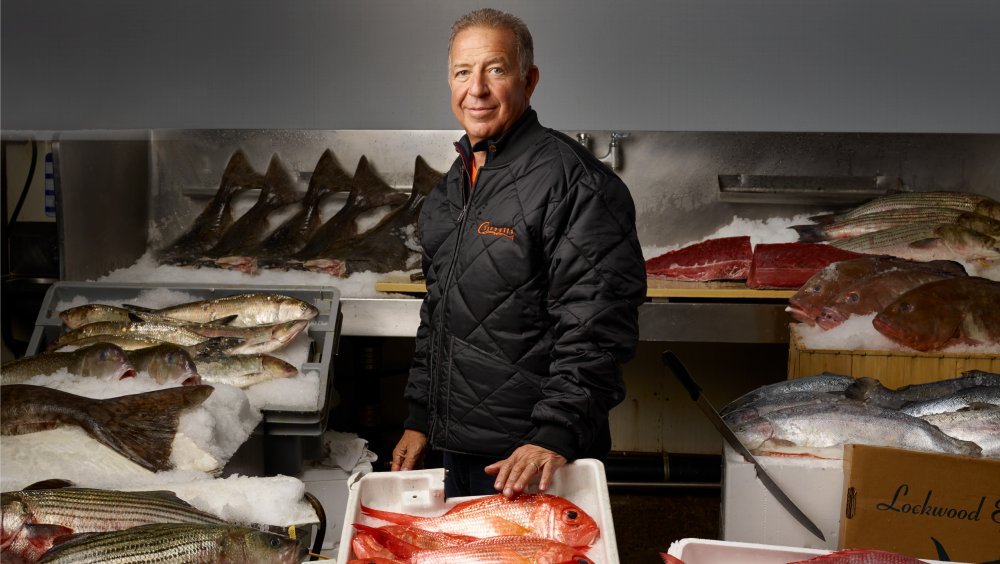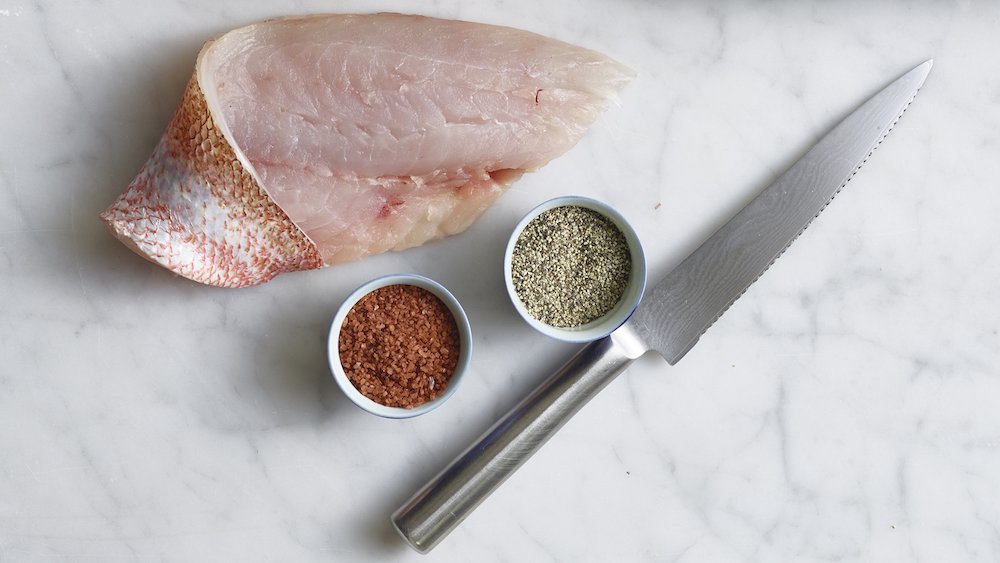Fishmonger Reveals How To Avoid Buying Mislabeled Fish
Here's a problem you might not realize that you have — how would you know if you were buying a piece of, say, cod, and instead you got haddock instead? Or trout in place of salmon? Or — horrors — cheap tilapia instead of that pricey Chilean sea bass you thought you were paying for?
Most of us can easily tell the difference between beef and pork, and we're also on pretty firm ground when it comes to recognizing the different types of shellfish since shrimp and lobster look nothing alike, and even clams, oysters, and scallops have easily distinguishable characteristics. When we purchase fish, however, we're often at the mercy of what it says on the packaging, and not all foods are always labeled correctly. So how can you make sure that the type of fish you think you're buying is actually what you're getting?
Fishmonger Joe Gurrera, owner of gourmet seafood market Citarella, reveals that there's really only one sure-fire way of avoiding mislabeled fish. His best piece of advice? "Rely on an expert fishmonger with a great reputation," he says.
Why you need a fishmonger's expert advice
Gurrera admits that it's not at all easy for the consumer to spot mislabeled fish, since with fish fillets, particularly ones where the skin has been removed, the visual differences are subtle and difficult to recognize. He says that for an experienced fishmonger, however, it may be second nature, speaking of his own 40 years in the business where he's learned from some of the top fishermen. Evidently fish-spotting isn't the kind of thing anyone can learn from a few YouTube tutorials, but requires putting in years of dedicated effort.
When asked how shoppers can find such an expert fishmonger on whom to rely for all their fish-purchasing needs, Gurrera asked, "Would you like my cell?" He went on to say, "In all seriousness, I would recommend befriending the owner or chef at your favorite local seafood restaurant and asking them where they get their fresh fish from." So there you have it — if you don't want to 'flounder' around in a sea of unidentifiable fish, it's best to leave the job to 'salmon' else.

